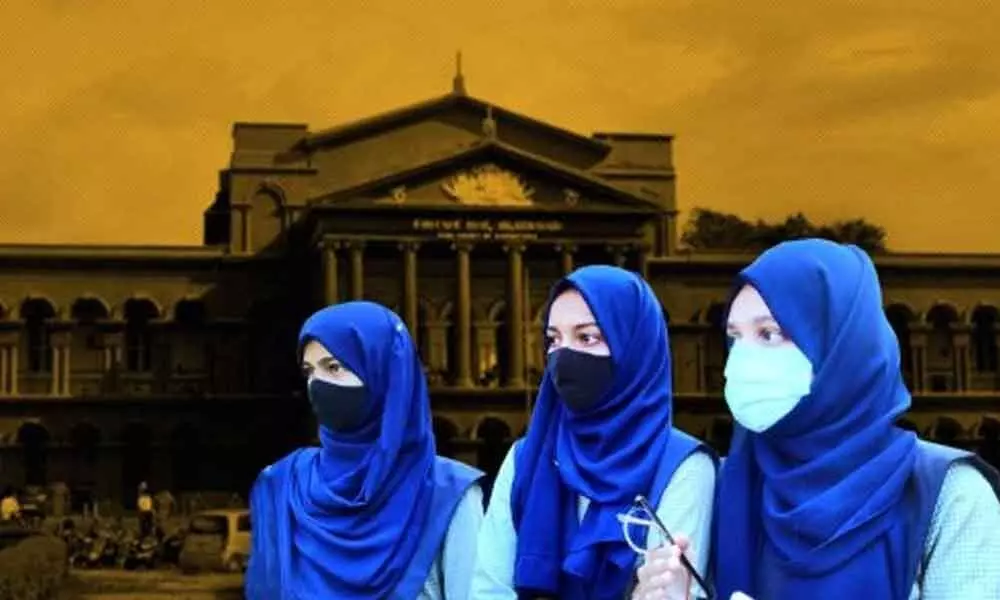Live
- National Energy Conservation Week from today
- Tourism projects to be put on fast track as VMRDA sets targets
- AI in KGBVs to empower students, build competencies
- Waltair Division observes ‘Energy Conservation Week’
- Srikakulam police bust two fake note gangs
- 3 held, 810 kg ganja seized
- Workshop on ‘Live Agri-technologies’ concludes at SPMVV
- Advancing Biomedical Research with NMR techniques
- Key Highlights of India in 2024
- Expose Opposition’s evil propaganda in villages: Seethakka to Cong workers
Just In
Bengaluru: Hijab not essential religious practice of Islam, HC told


Hijab is not an essential religious practice of Islam and stopping its use does not violate the constitutional guarantee of religious freedom, the Karnataka government maintained before the High Court on Friday, as it defended orders banning headscarves or saffron stoles in classrooms.
Bengaluru: Hijab is not an essential religious practice of Islam and stopping its use does not violate the constitutional guarantee of religious freedom, the Karnataka government maintained before the High Court on Friday, as it defended orders banning headscarves or saffron stoles in classrooms.
"We have taken a stand that wearing hijab is not an essential religious part of Islam," State Advocate General Prabhuling Navadgi told the court of Chief Justice Ritu Raj Awasthi, Justice JM Khazi and Justice Krishna M Dixit.
The AG defended the February 5 order which banned clothes "which disturb equality, integrity and public order" amid spiralling protests over the hijab ban across the State.
"There is no issue of hijab in the government order. It's innocuous in nature and does not affect the rights of the petitioners," contended Navadgi, adding that colleges can decide if they want to allow the hijab in the classroom.
"Conscious stand of the State is that we do not want to intervene in religious matters. We could have said hijab was against secularism and order and could have said it is not permissible. We have not. It is a stated stand of the State we did not want to intervene," he said.
However, he admitted that the portion prescribing clothes "in consonance with unity and equality" could have been worded better.
The AG rejected the charge of some Muslim students that the order on uniform violated Article 25 of the Constitution. Article 25 gives freedom of conscience and freedom profession, practise and propagation of religion to the citizens of India.
The government order also does not violate Article 19(1)(a) which guarantees to all its citizens the right to freedom of speech and expression, Navadgi argued.
"If somebody wishes to exercise the right to freedom of religion, it has to be seen if this exercise affects public order, health and morality," Navadgi contended.
To buttress his point, he said during the Covid-19 pandemic all the religious places were shut and the purpose for keeping the places closed was public health. In terms of hijab, it has to be tested in terms of morality, health and public order. According to the AG, the practice of hijab should pass the test of constitutional morality and individual dignity as expounded by the Supreme Court in the Sabrimala and Shayara Bano cases.
Navadgi told the court that the uniform had been in place in Udupi government pre-university college for girls since 2018. However, the difficulty began in December last year when some students approached the principal and insisted that they should be allowed to attend classes with hijab.

© 2024 Hyderabad Media House Limited/The Hans India. All rights reserved. Powered by hocalwire.com






